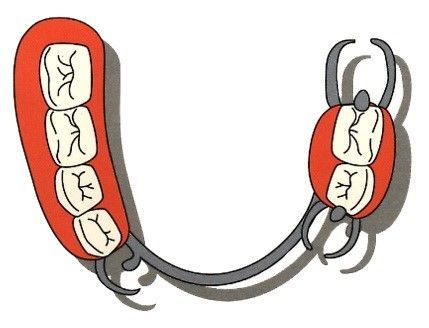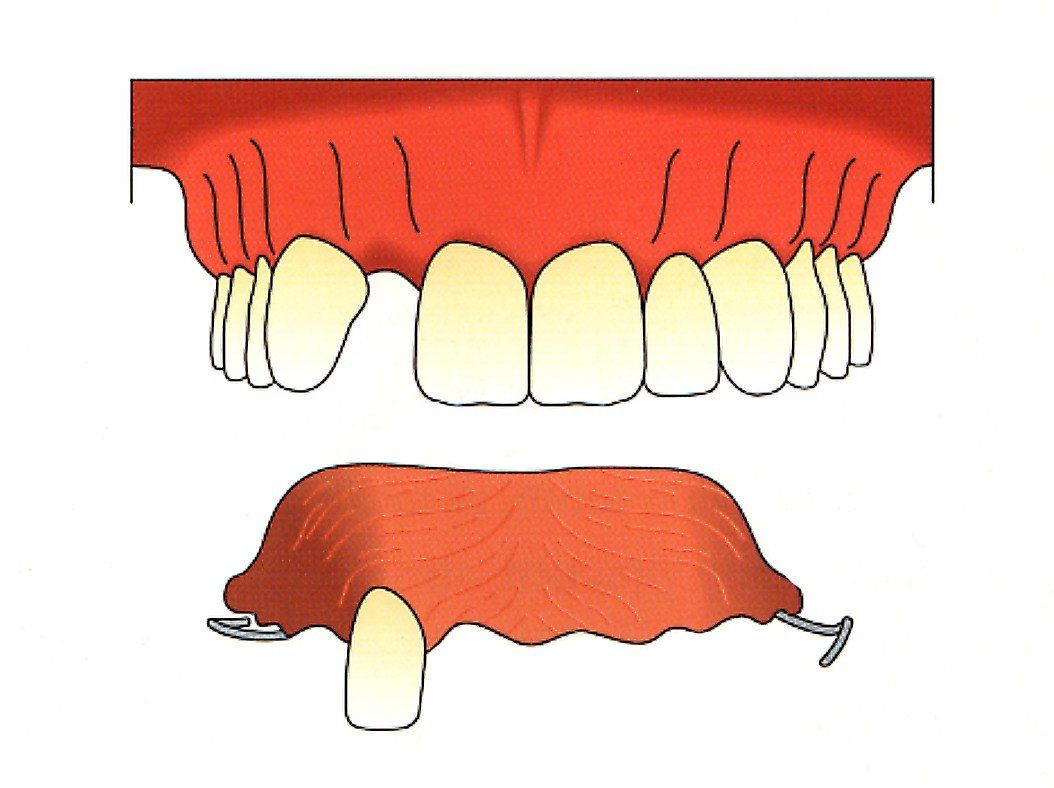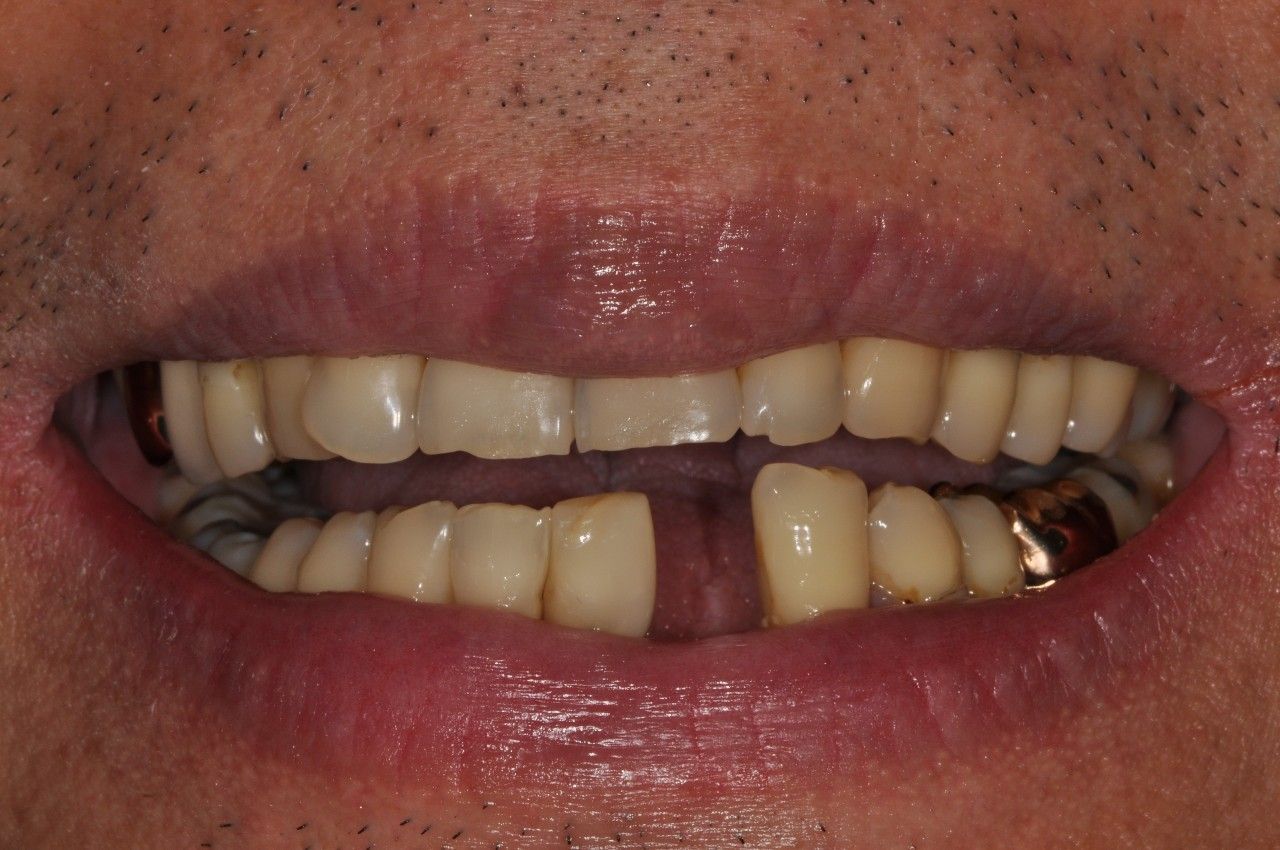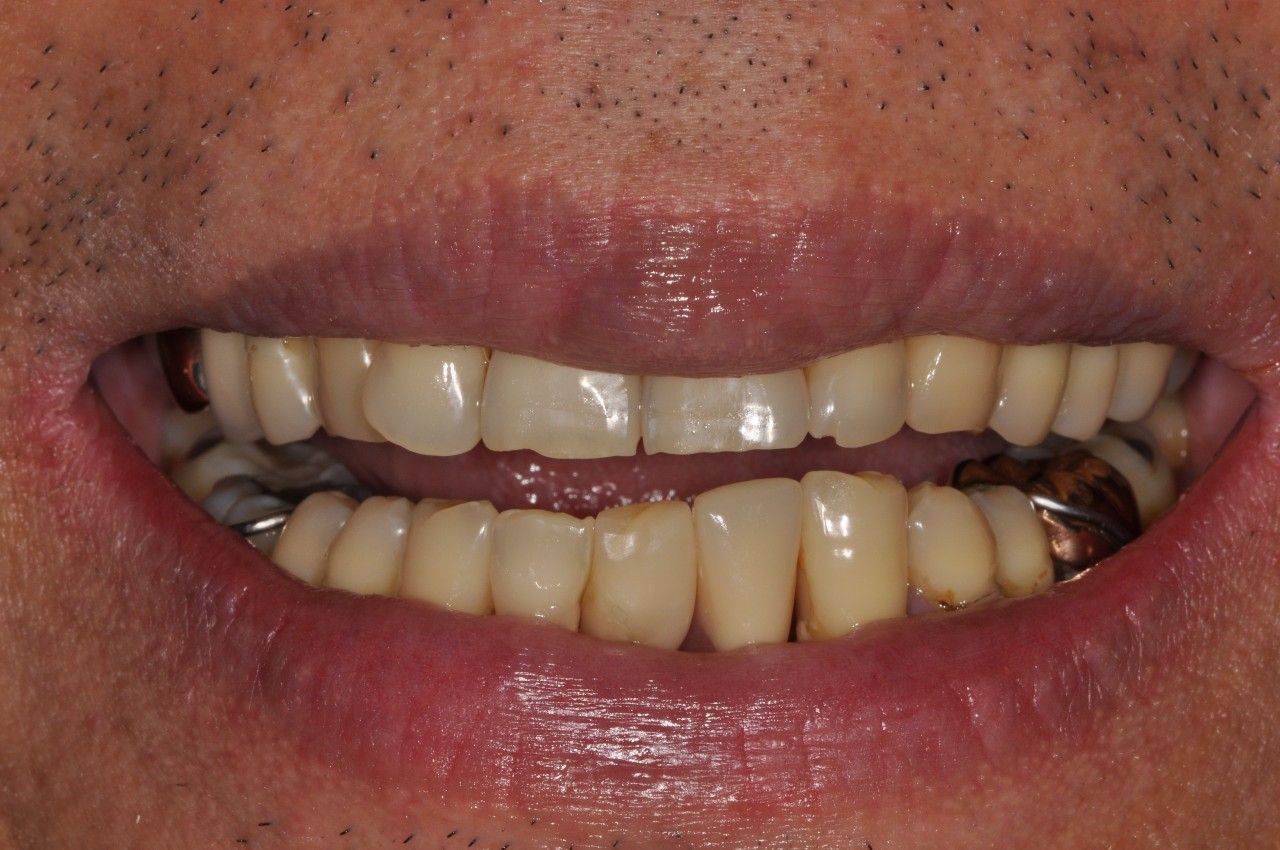PARTIAL DENTURES
Removable partial dentures are an excellent and more affordable way to replace one or several missing teeth.
PLASTIC PARTIAL DENTURES
A removable plastic partial denture consists of one or more false teeth, attached to a plastic plate. The plastic teeth look very realistic, while the base colour is pink to match your gums. A plastic partial denture is usually held in place by two or more clasps that go around the remaining teeth.
Advantages
- Aesthetics: Modern plastic materials used in dentures can provide very natural-looking teeth. Gum-coloured plastic can be used to fill out an area where there has been gum shrinkage, helping to restore the appearance of a full smile.
- Non-invasive: The placement of a plastic partial denture does not require any surgery or invasive procedures.
- Removable: Plastic partial dentures are removable, allowing for easy cleaning.
- Future proof: It is easy to repair and add teeth to a plastic partial denture in the future.
- Affordability: Plastic partial dentures are generally less expensive compared to other types of dental restorations, such as dental bridges or implants. They can be a more affordable option for individuals who cannot afford more expensive treatments.
Disadvantages
- Stability and comfort: Plastic partial dentures may not be as stable and comfortable as other types of dental restorations. They can sometimes be bulkier and may cause discomfort or sore spots in the mouth. For upper dentures, the plastic usually has to extend over the palate which means you do not feel temperature changes on the roof of your mouth.
- Durability: Plastic denture materials are generally not as durable as other materials like metal or porcelain. Over time, they may wear down or break, requiring repairs or replacements.
- Gum and tooth damage: Because most of the support for a plastic partial denture comes from the gum, not from teeth, they can cause the gum to recede. Where possible, plastic partial dentures are designed to avoid this. Partial dentures can trap food against adjacent teeth which if not cleaned out regularly may lead to tooth decay.
- Maintenance and Care: While dentures are easy to remove, they do require regular cleaning to prevent the build-up of bacteria, plaque, and stains. They should ideally be cleaned daily and removed at night.
Cost
The cost is $900-1990, depending on number of teeth and design
METAL PARTIAL DENTURES
A metal partial denture can be made to fit more accurately than a plastic one. The false teeth are attached to a thin strong metal frame.
Advantages
- Aesthetics: Metal partial dentures are designed to blend in with the natural teeth. Gum-coloured plastic can be used to conceal the metal framework and also to fill out any areas where there has been gum shrinkage.
- Non-invasive: The placement of a metal partial denture does not require any surgery or invasive procedures.
- Stability and Comfort: Metal partial dentures have excellent retention and stability. They use clasps or precision attachments that grip the remaining natural teeth, providing a secure hold and minimizing movement during eating or speaking.
- Strength and durability: Metal partial dentures are are made from a strong metal alloy, such as chrome-cobalt, which provides excellent strength and resistance to fracture. Because they are supported by natural teeth, they can withstand the forces of biting and chewing better than plastic partial dentures.
- § Precise fit: The use of metal frameworks allows for a more precise fit than for plastic partial dentures. They can be fabricated to fit the shape and contours of the patient's mouth very accurately.
- Thin and lightweight: Metal partial dentures are generally thinner and lighter compared to plastic partial dentures. This reduces bulkiness and makes them more comfortable to wear.
Disadvantages
- Visible metal clasps: In some cases, the metal clasps used to anchor the partial denture may be visible when smiling or speaking.
- Difficulty in adjusting: Unlike plastic partial dentures, metal partial dentures cannot be easily adjusted or modified once they are fabricated.
- Maintenance and Care: While dentures are easy to remove, they do require regular cleaning to prevent the build-up of bacteria, plaque, and stains. They should ideally be cleaned daily and removed at night.
- Affordability: Metal partial dentures tend to be more expensive than plastic partial dentures due to the additional fabrication steps and the cost of the metal alloy used. The price may vary depending on the complexity of the case.

What is involved?
- Some preliminary procedures such as minor tooth adjustment may be needed.
- Impressions are taken of the upper and lower teeth.
- A record is taken of how the upper and lower teeth close together.
- The shade and shape of the false tooth is selected.
- After the laboratory procedures are carried out and before the case is finished, it is tried in the mouth to ensure everything is satisfactory.
- The denture is fitted, and any adjustments carried out.
Cost
Approximately $2500.00, depending on number of teeth and design.
Wellington CBD Location
© 2024
Discover Dental
Contact
04 472 3510



